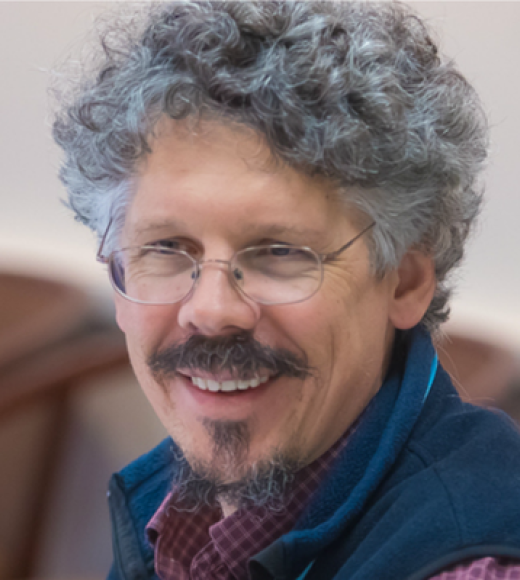The goal of the "Quick Twenty" project is to create a quick and fun introduction to STEM songs in each field (biology, math, etc.), making it easy for instructors and administrators to understand how songs can be used for education, and leading to wider adoption of STEM songs for teaching. We think that a "quick twenty list" in each field (not intended to be an objective and authoritative ranking; more like "twenty diverse examples of good songs") will accomplish this.
Biology
- Sep 22, 2019 - 9:30pmWalter Smith (Haverford College); Greg Crowther (Everett Community College)
- Sep 26, 2018 - 9:25pmRichard Heineman, Kutztown University
Anthropomorphism is impactful, and metaphors that draw on its power are widely used in science. For example, when DNA is described as the instruction manual for a cell, this implies a reader. However, anthropomorphism may reinforce misunderstandings that students are already inclined towards; for example, when we discuss a molecule or cell like a person with goals, we misrepresent what is actually a hardwired set of rules as a series of choices.
- Sep 25, 2022 - 4:00pmPetr Janata (UC Davis)
 Most people experience fragments of music that repeatedly play in their minds, many times a day. Involuntary musical imagery is a pervasive form of spontaneous thought and memory replay.
Most people experience fragments of music that repeatedly play in their minds, many times a day. Involuntary musical imagery is a pervasive form of spontaneous thought and memory replay. - Sep 22, 2019 - 5:25pmJason Wessels (Eastlake High School, Sammamish WA), Jennifer Breckler (San Francisco State U.), Lawrence Lesser (University of Texas at El Paso), Gregory Crowther (Everett Community College)
The possible benefits of using music to enhance learning of STEM content are numerous, diverse, and largely unproven. We sought to determine which of these possible benefits are most likely to be experienced by undergraduate students, and perhaps most worthy of further investigation. 440 students in eight physiology courses at two mid-sized American universities were asked to rate the usefulness of five short instructor-penned physiology songs, and to explain why these songs would or would not be useful study aids.
- Sep 22, 2019 - 7:05pmGreg Crowther (Everett Community College); Larry Lesser (The University of Texas at El Paso)
Thousands of STEM songs exist (the singaboutscience.org database alone has over 7000), but they vary widely in how readily a teacher can use them in her class. For some teachers, it may be enough that a song exists on the learning objective at hand, but for (probably, most) teachers, a song is not a self-contained lesson and it makes a huge difference if the song is supported by accompanying resources.
- Sep 27, 2017 - 9:30pmKevin Ahern, PhD, Oregon State University (OR)
The Metabolic Melodies are a collection of over 100 song lyrics set to tunes of popular music. Topics covered by the songs span a wide swath of biochemistry and are used to teach the subject to non-major students at Oregon State University. Discussion will focus on the genesis of the musical ideas and how the songs help to cut through barriers and facilitate student learning.
- Sep 22, 2019 - 9:05pmRichard Heineman (Kutztown University)
One of the fundamental divides in musical pedagogy is whether to write original songs or parody existing songs. As a parody songwriter, I will explore the advantages of parody, which include ease of use, student familiarity, and an inherent mood that can be exploited. I will discuss my methods for maximizing these advantages.
- Sep 26, 2021 - 6:50pmTracey-Ann Palmer (University of Technology Sydney, Australia)
Songs can be effective in engaging children with science. Tweens (children aged 8 to 12) are in an important preadolescent phase where individual interests are thought to be established. This study aims to determine if songs can help teachers to engage their tween-aged students with science. A review of the songs currently available to help teachers in Australia engage tweens with science was conducted. Few songs were found that were directed at tweens and most were aimed at content knowledge rather than engagement.
- Sep 23, 2019 - 2:05pmJohn Hinton (Ensonglopedia)
An Ensonglopedia is a collection of 26 peer-reviewed educational songs on a single theme, one for each letter of the alphabet. I tour these song collections regularly around the UK, and have produced accompanying music videos and a making-of documentary, which can be found on YouTube, as well as audio albums which are available on Spotify, iTunes etc.